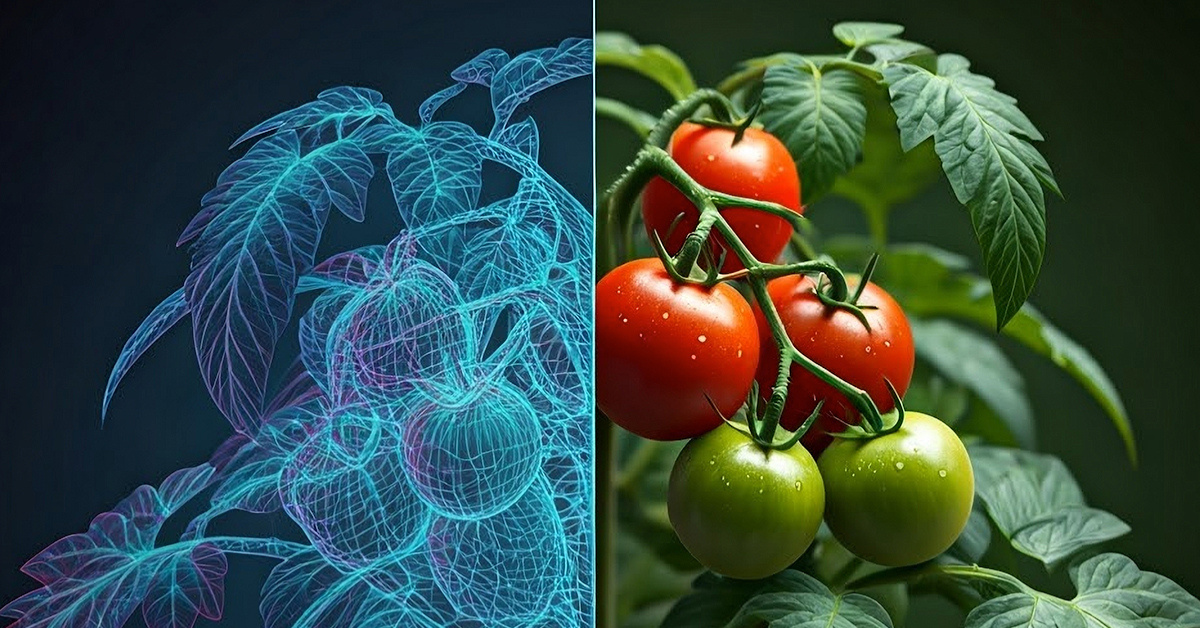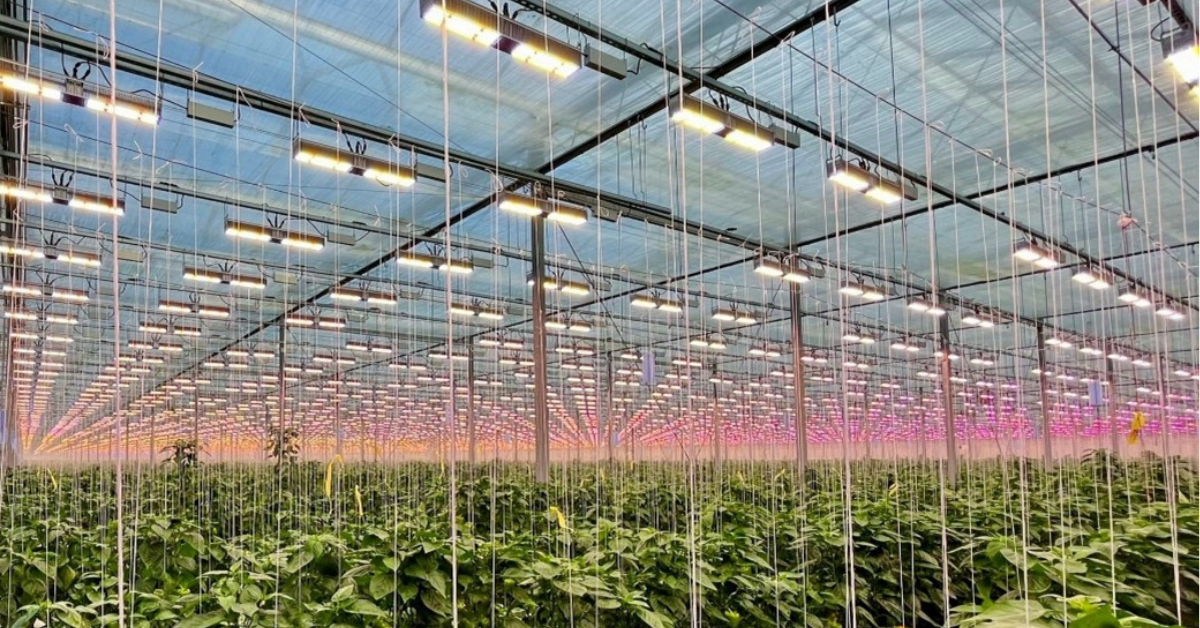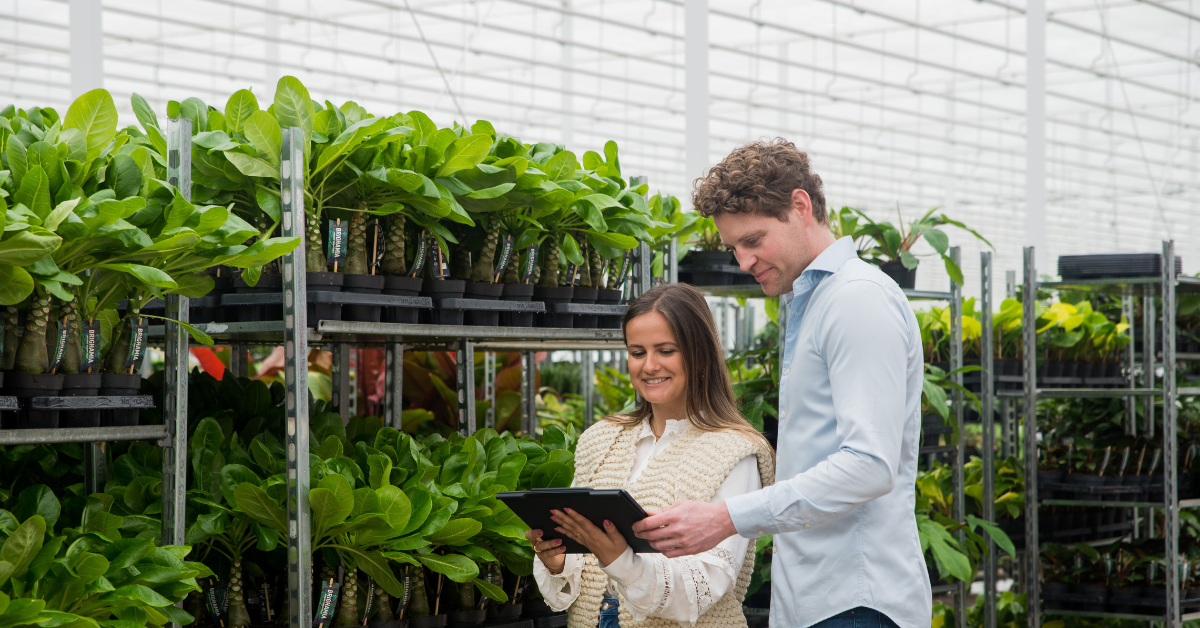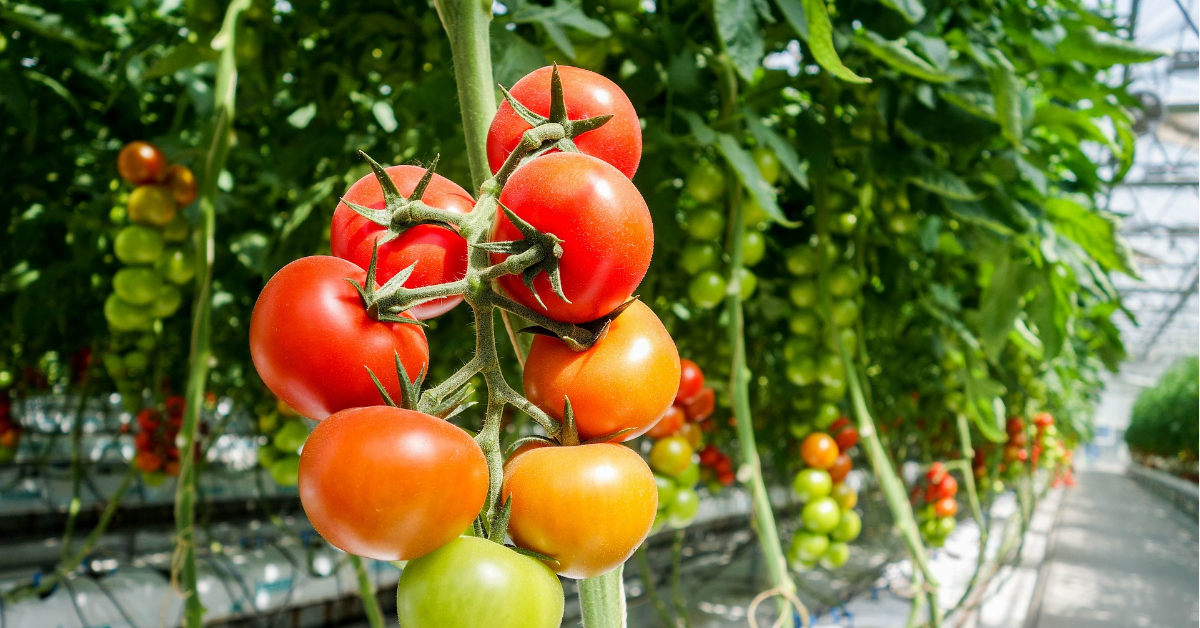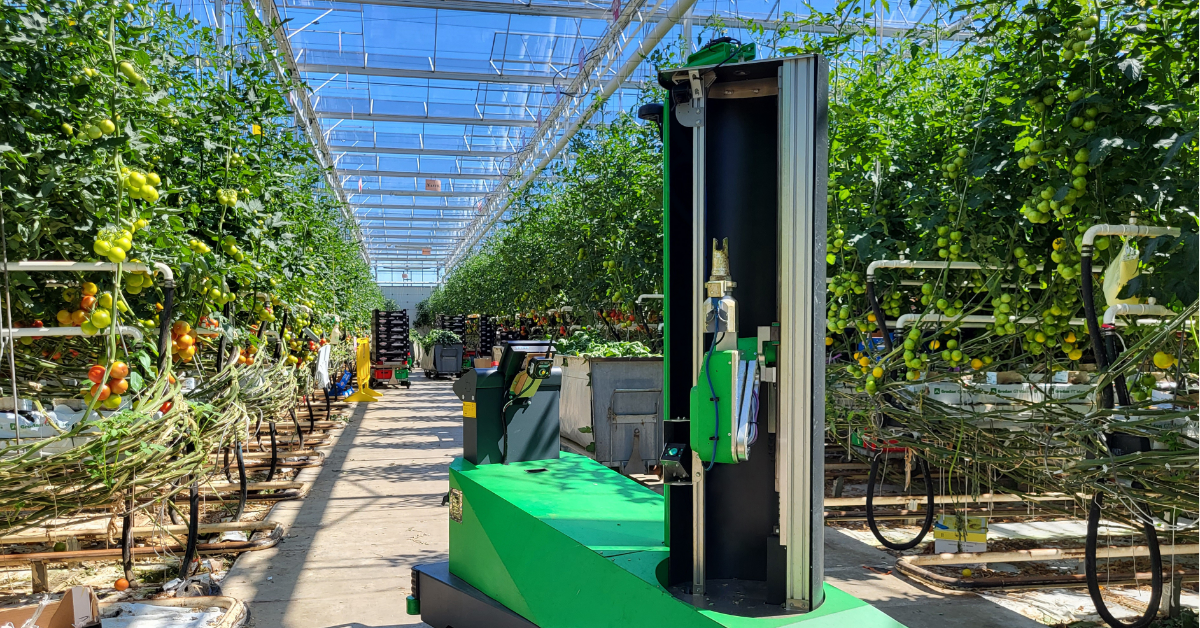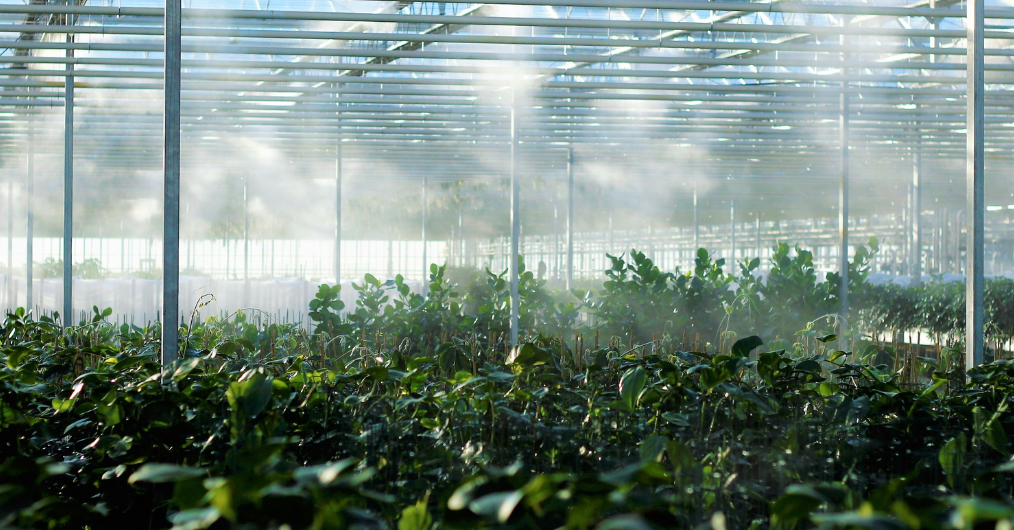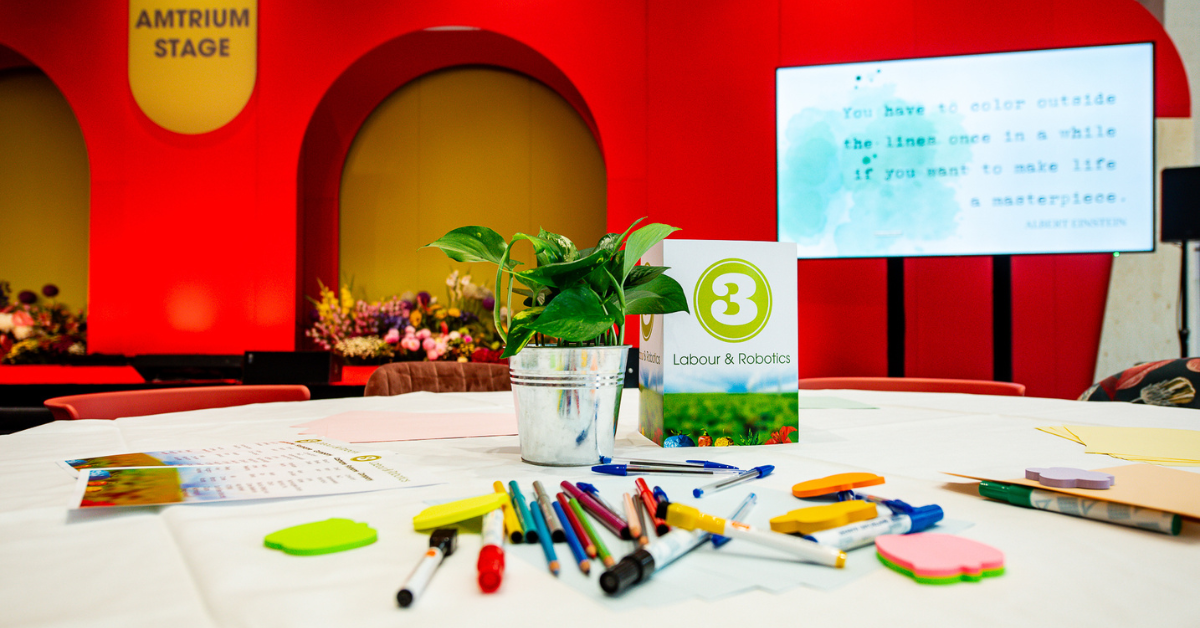Power Day 2025: It started with a cow
 Author: Rachel Anderson
Author: Rachel AndersonDairy cows may seem like an unlikely talking point during a discussion on artificial intelligence (AI) but – far from being a moo-t point – these milkers were a key part of this year’s Power Day event. Rachel Anderson reports.
Entitled ‘Passion for growth - harnessing AI in cultivation’ this year’s Power Day (the third of its kind) was held at GreenTech Amsterdam on Wednesday June 11, 2025. Then, delegates were reminded how horticulture is part of the wider food production community (including dairy and other sectors) that will be responsible for feeding the 10 billion people that are expected to be on our planet by 2050.
AI is clearly going to play a key role in helping to feed the world’s burgeoning population. As GreenTech Exhibition Manager Kim Schotborgh said: “AI is a very important topic right now.” Welcoming Power Day delegates to the event, she highlighted how this year’s GreenTech Amsterdam featured a new robotics and AI lab in the Innovation Zone, 23 knowledge sessions about robotics and AI, and more than 20 exhibitors highlighting the robotics and AI route.
“I think they have really cool solutions. So, enjoy yourself. Ask questions, be open. This is especially empowering. We are not here to share a presentation. We are here to get together and make new and surprising connections.”
Power Day host Peter Klapwijk, Owner of Consultancy 2Harvest, said: “It’s an honour to be the third-time host of this Power Day … and once again, I’m surprised by how many people are here from different countries to exchange ideas and inspire each other.”
Introducing guest speaker Kees Pruis, lead data scientist for robotics and agricultural solutions company Lely, Klapwijk said: “Lely, for me, is the icon. It started with just a cow, and they built the company based on data … we can learn a lot from them.”
Pruis explained that Lely has developed AI solutions for every part of a working cow’s life, including the feeding, cleaning, milking, and health of the animal. This includes, for example, an AI-driven, fully-autonomous harvesting device that drives into fields to pick fresh grass multiple times a day and bring it directly to the cows. As Pruis said: “A healthy cow gives more milk.”
Having recently read a LinkedIn post by strategic AI advisor and shepherd Elly Kort – who highlighted the similarities between sheep and AI adoption – Pruis noted that there are also many similarities between cows’ behaviour and businesses’ adoption of AI. “What’s most important is that cows don't rush – so don't do that with AI either.” He also noted that cows are led by trust, and they trust consistency. Decision-makers and employees who are adopting AI should therefore focus on building their trust in the technology, such as by learning what it is and what it can do for their business. “Because once you are wrong, I think it's very difficult to gain back the trust.”
Pruis also noted that cows like to follow quiet leadership (namely, leadership that is based on collaboration and empowerment). “Have a very clear direction. And I think if you do that … the systems will be smart, and the growth will be sustainable.”
He concluded his presentation by emphasising the importance of collaboration. “For me, the most important thing is working together. Start with the problem. Don't walk into a barn or walk into a greenhouse and say: ‘Where can I utilise AI?’ Instead, really try to figure out what the problem is that you want to solve and start from there.”
Round-table discussions
Following Pruis’ presentation, the Power Day each of the delegates took part in a moderator-led table discussion to talk about the real-world challenges and opportunities that AI offers the commercial horticulture sector. Questions they were encouraged to discuss included: “How do you organise a good connection and interaction in your company between knowledge about the growing operation process versus AI technology?” and “What will be the directions in your successful AI projects?”
Leo Swart, Owner of Cresultant and Developer of the PlantScout app, noted that a key theme to emerge from the table discussion that he moderated was the need to show staff members the capability of AI/what it can bring to their company. Also important was the importance of leadership /company leaders adopting and showing the team how to use AI – with emphasis on the need for leaders to communicate with the team from the start so that “everyone is fully aware of what it is doing for them/the company.” The requirement for data to be consistent – with correct data points – at the start, was also emphasised.
As one delegate on Swart’s table said: “The first step is to train people to understand how AI can help them, because if people don't understand what those tools are doing, then they blindly trust the outcome without understanding the process. I think that awareness is important, that people understand what the tool is doing. I think that education aspect and having the correct data are the first two steps before we even start thinking about using it.”
Moderator Sjoerd Nieboer, who is a trainer at Beanstalk Training, noted how another table concluded that “those who do not invest in AI or robotics now probably won’t exist in three years’ time.” Delegates also agreed that companies should identify the biggest gains before developing experience in AI projects to build trust. As moderator and Beanstalk Training’s Marit Nieboer pointed out, the workplace is the best learning environment. Arguably, this is why the second and third steps agreed on by this particular table were to start collaborating with each other before forming dedicated teams that work with one other. “Maybe the growers among us can recognise this … if a grower talks to a technician, let alone the data scientist … we don't speak the same language. We don't understand each other, and so we have to work together from start to finish,” said Sjoerd.
Moderator Maren Schoormans, Business Manager at ZEISS Group, noted that some of the growers on his table admitted that it is often very hard to integrate different (software) systems in the greenhouse – so much so that there might a case for designing a new AI-based system from scratch “and binning everything that exists.”
Moreover, moderator Stijn Weijns, Agro Care managing director, revealed that some delegates opined that an AI “grower co-pilot” would be particularly handy, as would AI assistance with IPM forecasting and preventative methods.
Conclusion
Delegates learned during Power Day how healthier cows result in more milk production and a profitable future for the farmer. AI is already helping Lely to achieve this – and will undoubtedly help many horticulture businesses in the near future. As Pruis asserted: “Everything that we do, we do for a sustainable profitable, and a more enjoyable future.” And remember: “Cows don't rush, they trust consistency, they follow quiet leadership.”

